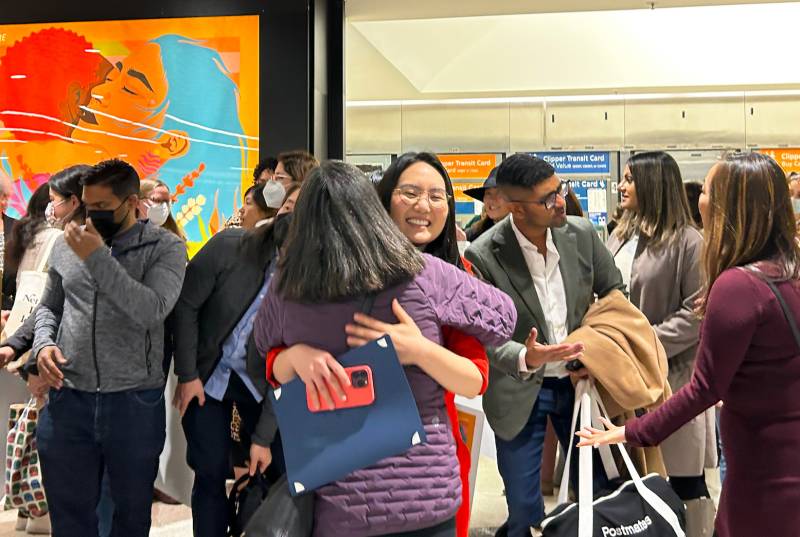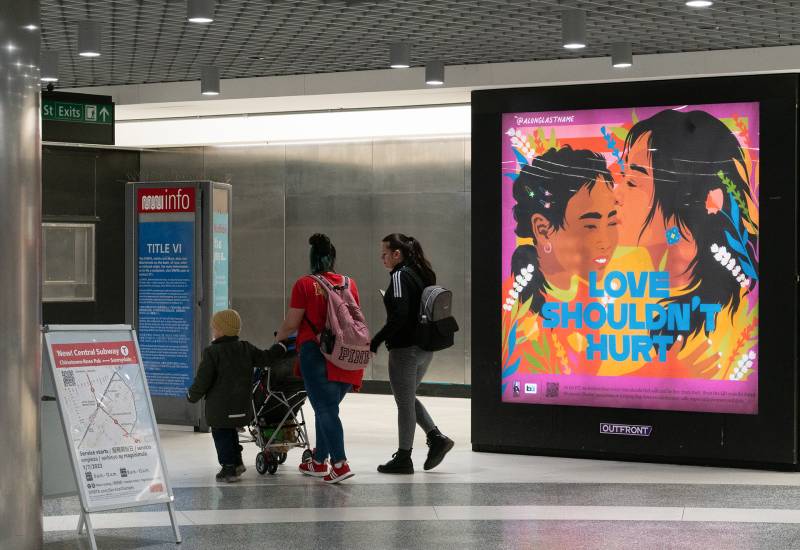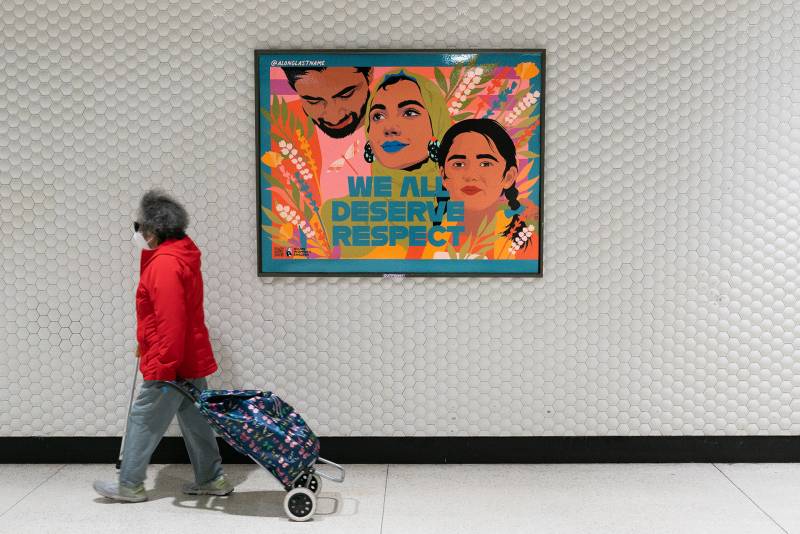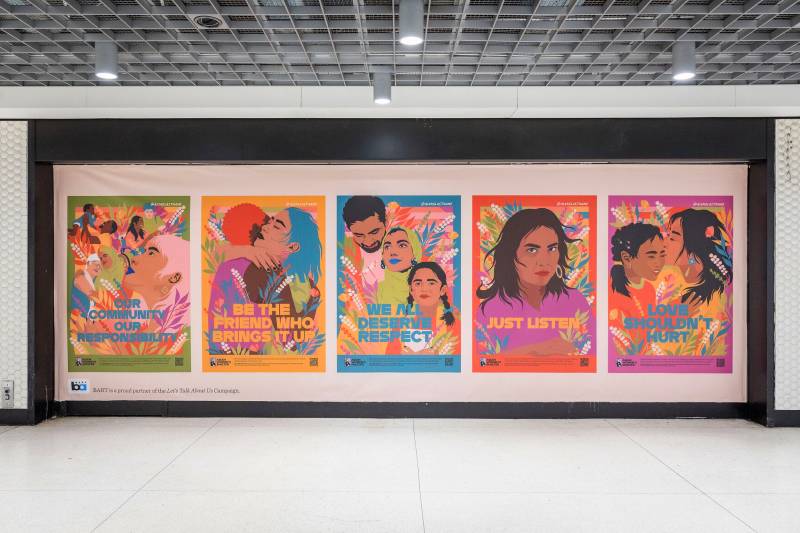If you’ve taken BART or Muni in San Francisco or Oakland over the past week, you might have noticed the affirming messages on station walls, billboards and bus shelters in Tagalog, Spanish, Chinese and English.
“Love shouldn’t hurt,” reads a poster featuring an illustration of a mother kissing her smiling daughter on the forehead. “Be the friend who brings it up,” reads another depicting two friends holding each other in an emotional embrace. Colorful spring flowers surround the figures, inviting feelings of renewed hopefulness and warmth.
Amanda Phingbodhipakkiya created these artworks for a new domestic violence awareness campaign in partnership with Asian Women’s Shelter and BART, Let’s Talk About Us. Rather than positioning abuse as a private issue between partners or family members, Phingbodhipakkiya takes a different approach: calling on the public to foster more nurturing relationships and address violence in our communities.
“Through art, we just boldly say that domestic violence prevention is a shared responsibility, and that really everyone has a role,” Phingbodhipakkiya tells KQED.

Born in Georgia to Thai and Indonesian parents, Phingbodhipakkiya is currently in a civic practice artist residency with San Francisco’s Asian Art Museum. The Brooklyn-based artist works across mediums — murals, textiles, sculptures, public art campaigns and participatory installations — with the intention of “invoking joy and belonging in the face of grief and injustice.”





